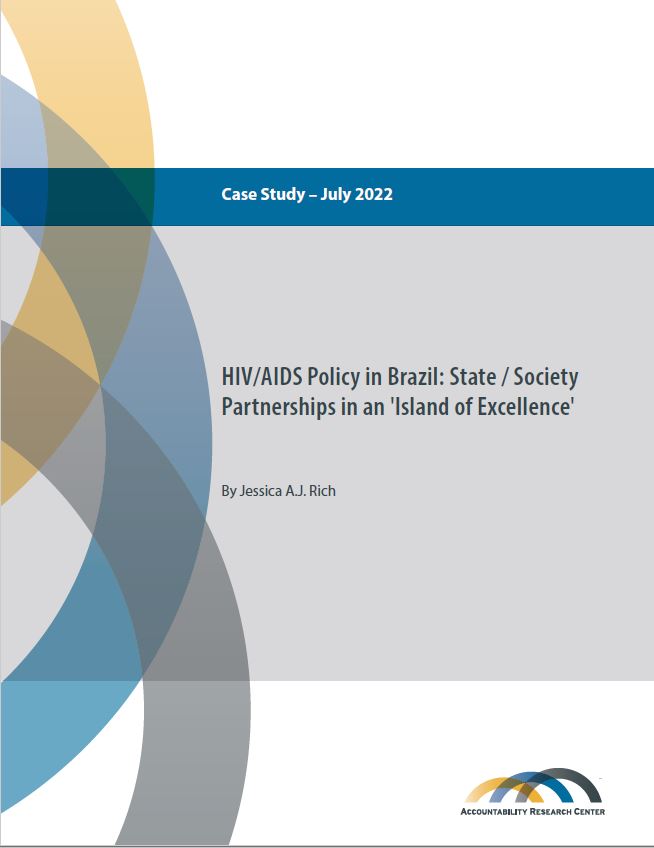
HIV/AIDS Policy in Brazil: State/Society Partnerships in an ‘Island of Excellence’
Date: July 2022
Author(s): Jessica Rich
Publication type: Case study
Published by: Accountability Reseach Center
“Sandwich strategies” are interactive processes in which reformers in government take tangible measures that reduce the risks of citizen action from below, driving virtuous circles of mutual empowerment between pro-accountability actors in state and society. This case study is one of a set of 18 published here, which are among those included in comparative analyses of whether and how sandwich strategy initiatives drive institutional change.
This case study examines Brazil’s sustained success on AIDS treatment and prevention policy, explaining why government bureaucrats supported independent forms of civic organization and mobilization in pursuit of their objectives. Beginning in 1994, Brazil’s national AIDS program created official spaces for CSOs to participate in and oversee all areas of policy, and a 1996 law promised treatment to all citizens.
This opening broadened a network of small advocacy groups in a few cities into a national movement. With support from a World Bank loan, activist bureaucrats and civil servants worked together to fund policy advocacy organizations throughout the country to support the implementation of national AIDS policy, to offset opposition from conservatives in congress and other executive branch agencies. Government support included substantive funding for advocacy, travel costs for networking, and inside information.
Decentralization of the policy to state and local governments in 2004 led to new obstacles, leading federal government reformers to create a new national participatory council to address implementation problems, and to encourage new local AIDS service organizations to oversee subnational governments. Activists came together in an autonomous national, multi-level CSO policy coalition, sustaining an enduring power shift.
